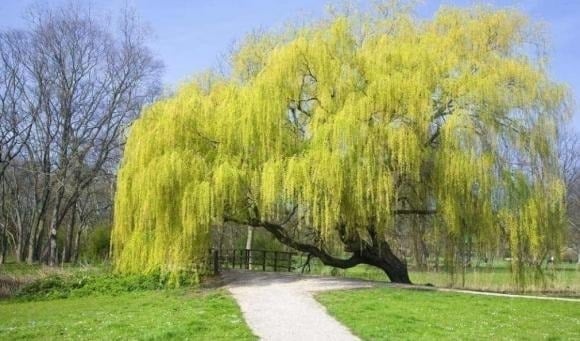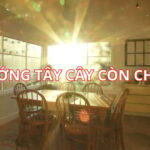Mulberry Tree
In traditional culture, the mulberry tree is considered inauspicious to plant in front of a house due to the homophonic nature of the word “dâu” (mulberry) with “để tang” (mourning). It is believed that planting certain trees in front of a home can bring bad luck and negatively impact a family’s wealth and health.
The saying, “If you don’t plant a shade tree, your wealth will disperse,” emphasizes the importance of choosing the right type of tree. There are five types of trees associated with luck and cultural value, but they are considered unlucky or bring bad luck, so most people avoid planting them in front of their homes.
Willow Tree
In feng shui, the willow tree is believed to carry negative energy and easily attract evil spirits. With its drooping branches and leaves, the willow tree creates a somber and weak atmosphere, which is not conducive to creativity and a harmonious family environment. Therefore, it is usually not planted indoors.

The Willow Tree is Associated with Negative Energy and Evil Spirits in Feng Shui
Soap Nut Tree
Despite its robust vitality, the soap nut tree’s tall stature and dense branches can block light and air circulation. Moreover, it attracts insects and causes inconveniences, making it unsuitable for planting near a house.
Chinese Fir
Although the Chinese fir remains evergreen throughout the four seasons, its solemn appearance often evokes a sense of seriousness and gravity. In traditional culture, the Chinese fir is often associated with funerals, so it is rarely planted in front of homes.

The Chinese Fir’s Evergreens Symbolize Seriousness and Gravity
Pear Tree
The pear tree is a popular fruit-bearing tree often found in orchards or on farms. While the fruit is beloved, the name “lê” (pear) is not favored due to its homophonic nature with “li,” which means separation and bad luck. As a result, pear trees are typically not planted in home gardens, and when eating pears, people avoid eating alone.
Why Did the Ancients Say: Foolish to Build a House Facing West, and Sillier Still to Buy Land Next to a Temple?
Purchasing land and building a house is a significant decision that requires careful consideration. It is a complex and often daunting process that can be overwhelming for many individuals. With a myriad of factors to contemplate, from location and budget to legalities and design preferences, it’s essential to approach this endeavor with prudence and foresight.





































